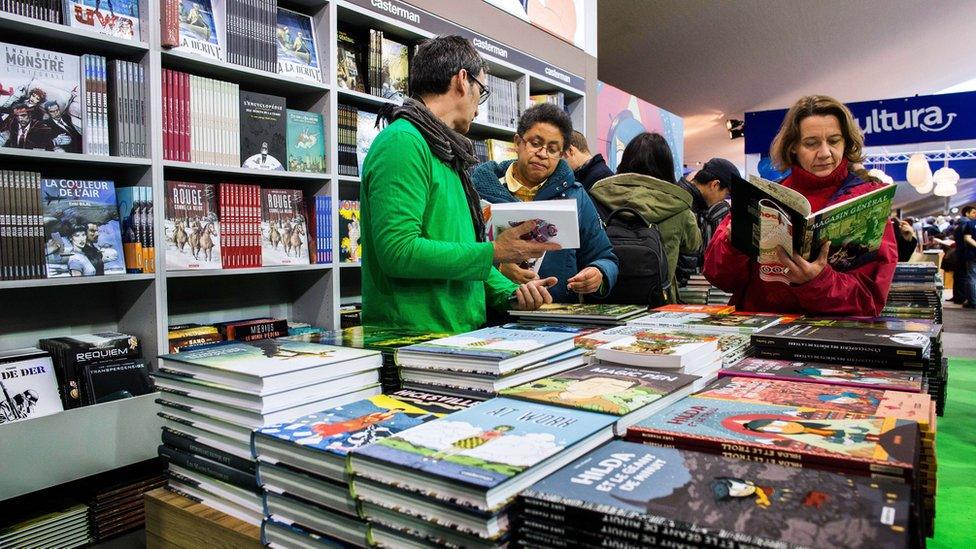French comics festival marred by sexism row
- Published

Only one woman has ever won the Grand Prix award in the Angouleme festival
A prestigious award for graphic novelists in France is facing calls for a boycott after its long list of nominees failed to include any women.
The 42-year-old Grand Prix at Angouleme has long faced criticism for its failure to recognise women cartoonists.
This year, a pressure group is calling for a boycott, saying "it is no longer tolerable" that "renowned female creators" are left off the list of 30.
At least three male nominees have publicly backed the protest.
They have asked for their names to be removed from the list.
The Grand Prix is a highly prestigious prize, recognising the lifetime achievement of a cartoonist. It is handed out each year at the Angouleme International Comics Festival, external.
In its long history, only one woman, Florence Cestac, has ever won the prize.
A group called BD Egalite, external, or Women in Comics Collective Against Sexism, said the prize was significant, because as well as being honorary it could also boost an artist's career and book sales.
"What is the message sent to women cartoonists and those in the process of becoming such?" it asked on its website. "We are discouraged from having ambition, from continuing our efforts. How could we take it otherwise?
"It all comes back to the disastrous glass ceiling. We're tolerated, but never allowed top billing. Will we require women in comics to perpetually play second fiddle?"
A number of cartoonists on the long list have since asked for their names to be removed.
'Ridiculous, embarrassing'
American Daniel Clowes called it, external a now "totally meaningless 'honor'."
"What a ridiculous, embarrassing debacle," he added.
Riad Sattouf on Facebook, external listed a number of female cartoonists he would "prefer to cede my place to", including Rumiko Takahashi, Julie Doucet, Anouk Ricard, Marjane Satrapi and Catherine Meurisse.
The Festival's Franck Bondoux was quoted in French media as saying that Franco-Belgian graphic novels, known as "bande desinee", had traditionally been dominated by men.
"The festival cannot distort this reality, although I concede that the list might contain one or two female names," he said.
But he rejected accusations that the festival ignored the contribution of women artists, giving examples of steps it was taking to promote their work.